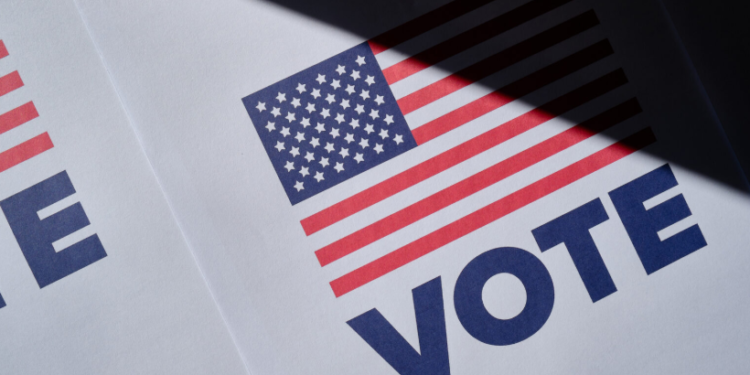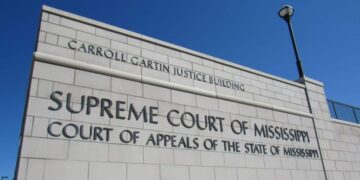Jan 27, 2025 Story by: Editor
Over the past decade, conservative judges have steadily eroded voting rights, subjecting the Voting Rights Act to heightened scrutiny. With the incoming Trump administration and Republican majorities in Congress, they are poised to gain additional support. Concurrently, GOP-led states are introducing new restrictions on voter registration and ballot access, leaving civil rights organizations scrambling to mount legal challenges in federal and state courts.
While federal protections are being chipped away, some states are stepping in to bolster voting rights by enacting their own voting rights laws, banning partisan gerrymandering, and expanding voter access. However, these measures are also facing legal challenges from conservative groups, raising questions about the most effective ways to safeguard democracy.
In this evolving political climate, Bolts has highlighted eight critical legal battles expected to shape voting rights in 2025. These cases will have a profound impact at the local level, influencing issues such as redistricting in Florida and Louisiana, mail ballot rules in Mississippi, and new protections in New York. Additionally, their outcomes could ripple nationwide as other states evaluate their own strategies to either strengthen or curtail voting rights.
1. Could a redistricting case in Louisiana weaken the Voting Rights Act?
Conservatives have launched a multi-faceted effort to dismantle the Voting Rights Act (VRA), particularly targeting the use of race in redistricting to create minority-majority districts. This effort is culminating in a significant Supreme Court case centered on Louisiana’s congressional map.
After the 2020 census, Louisiana approved a congressional map with just one Black-majority district spanning Baton Rouge to New Orleans. Plaintiffs argued that this diluted Black voters’ power and violated the VRA, which necessitated two Black-majority districts. Following extensive legal proceedings, the Fifth Circuit Court of Appeals sided with the plaintiffs in 2023, ordering a new map by January 2024.
The new map included a second Black-majority district extending from Baton Rouge to Shreveport, electing Cleo Fields, a Black Democrat, in November. However, a group of predominantly white voters—identifying as “non-African American”—filed a lawsuit to overturn the map, claiming it violated the Fourteenth Amendment’s Equal Protection Clause by improperly relying on race. Although two Trump-appointed judges deemed the map unconstitutional, the Supreme Court permitted its use for the 2024 election.
The Supreme Court will hear this case in spring 2025, with a decision expected by June. A ruling against the map could undermine Section 2 of the VRA, which protects minority-majority districts, or impose additional restrictions on considering race in redistricting. Either outcome would jeopardize Cleo Fields’ congressional future and raise broader questions about the VRA’s viability.
2. Will courts uphold new state-level Voting Rights Acts?
As federal voting protections wane, some states have enacted their own robust voting rights acts (VRAs) to enhance fairness in redistricting and ballot access. However, these state-level laws have drawn conservative challenges.
In New York, a superior court judge struck down the state’s VRA in 2024, citing violations of the U.S. Constitution’s Equal Protection Clause. The case is progressing through New York’s appeals process, presenting a significant test for state VRAs as a federal law alternative.
Other states, such as New Mexico and Minnesota, have also enacted VRAs in recent years, creating new battlegrounds as courts determine their durability.
3. Could mail ballots lose their grace period?
In 18 states, mail ballots are accepted after Election Day if postmarked on or before Election Day. This policy provides flexibility for voters, but a recent ruling by conservative judges challenges this long-standing practice.
In October 2024, three Trump-appointed judges on the Fifth Circuit ruled that mail ballots must be both cast and received by Election Day, asserting that extended deadlines conflict with federal election laws. Although the ruling did not impact the 2024 election, its appeal may reach the U.S. Supreme Court in 2025, potentially leading to nationwide restrictions.
Eliminating the grace period could disenfranchise thousands of voters, especially those affected by postal delays. Trump’s proposals to privatize the USPS could exacerbate these challenges. Here’s a draft summary for the article:
4. Criminalizing Voter Assistance
GOP-led states like Alabama, Missouri, and Florida have implemented strict laws targeting voter assistance efforts, including help with mail ballots and voter registration. Federal and state courts have blocked these measures, but appeals in 2025 will determine their future and set critical legal precedents.
5. Virginia’s Lifetime Voting Ban for Felons
Governor Glenn Youngkin reinstated a lifetime ban on voting for individuals with felony convictions, disproportionately impacting Black Virginians. Two lawsuits challenge this policy: one citing the Reconstruction-era Virginia Readmission Act and another claiming First Amendment violations. These cases could expand voting rights if the courts strike down the current laws.
6. Targeting Noncitizen Voting Allegations
Republican-led states like Arizona and New Hampshire have introduced proof-of-citizenship requirements for voter registration, disproportionately affecting eligible U.S. citizens lacking proper documentation. Legal challenges to these laws, including federal claims under the National Voter Registration Act, will shape future voting rights legislation.
7. Noncitizen Voting in New York Local Elections
New York City’s 2021 ordinance allowing noncitizens to vote in local elections remains stalled due to court challenges. The state’s highest court will determine its fate, potentially influencing similar policies nationwide.
8. Florida’s Redistricting Reform at Risk
Florida’s Fair District Amendments, meant to curb partisan and racial gerrymandering, are under threat. The Florida Supreme Court, led by Governor DeSantis’ appointees, is considering whether to uphold or eliminate these protections. This could dismantle barriers against gerrymandering and further dilute Black political representation.
9. Emerging State-Level Battles
Democratic challenges to North Carolina’s new election administration laws, Wisconsin’s fight over election leadership, and Pennsylvania’s debate over mail ballot rules are additional flashpoints. Legislative sessions in 2025 may also generate fresh legal disputes affecting voting access.
As democracy faces critical tests across the U.S., the outcomes of these cases will define the landscape of voting rights for years to come. Source: OCJ

















